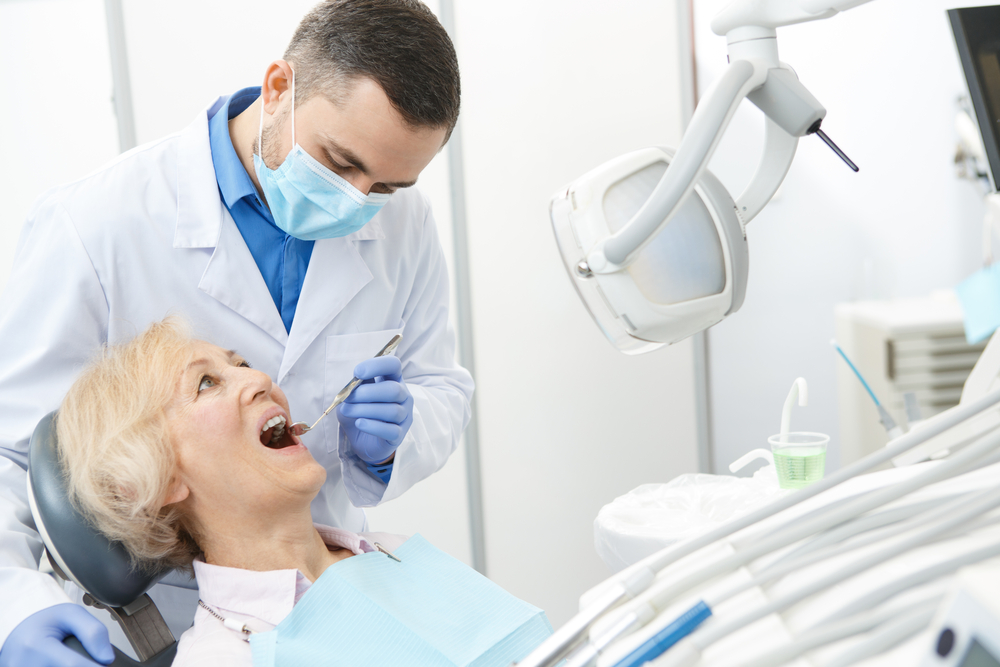The benefits of good oral hygiene are often ingrained in our minds from a young age. But as you’re probably aware, not everyone keeps up with it throughout their lives, and aging adults are among those who often struggle to keep their teeth healthy.
By 2030, all baby boomers (who account for over 20% of the U.S. population) will be 65 or older, and by 2060, 98 million people will be in this age group. According to the CDC, older Americans who suffer from a disability, smoke cigarettes, and live in nursing facilities are more likely to have poor dental health.
Sadly, there are many things that may hold an elderly individual back from taking good care of their teeth. Nonetheless, dental hygiene is a critical component of overall health, and it shouldn’t be overlooked.
So, why is oral care important in the elderly? The team at Alliance Homecare in New York is here to answer this question and offer guidance for seniors and their families looking for solutions.
The Importance of Oral Care in Elderly Adults
The importance of oral care in elderly adults really can’t be overstated. A study in the Journal of Aging Research found that maintaining good dental health is associated with living longer.
But why, exactly? When aging adults don’t take care of their teeth, they could face gum disease, tooth decay, dry mouth, and tooth loss, as well as an increased risk of other illnesses, waning overall health, and a decreased quality of life.
Gum Disease
The CDC reports that roughly two-thirds of adults 65 and older have gum disease. Minor cases involving gingivitis can typically be turned around by focusing on better dental habits. However, periodontitis (severe gum disease) could lead to bleeding gums, chewing issues, tooth loss, and general soreness in the mouth.
Chronic infections can also spread to other parts of the body. And unfortunately, it’s not uncommon to be unaware of gum disease until it advances to periodontitis, especially in the absence of regular dental visits.
Cavities
Then there’s the risk of tooth decay. The condition occurs when an accumulation of bacteria creates plaque, which then wears down tooth enamel and eventually leads to cavities. When cavities aren’t filled, the decay can worsen, spread to other parts of the mouth, and end up damaging otherwise healthy teeth.
Dry Mouth
One reason elderly individuals are more susceptible to cavities is that many of the most common medications prescribed to older adults cause dry mouth. Characterized by a lack of saliva production, the condition is undoubtedly uncomfortable and can affect speaking ability. More concerning, though, is that dry mouth increases a person’s risk of tooth decay and oral infections because saliva is part of what helps rid the mouth of bacteria.
Tooth Loss
According to the CDC, about 20% of adults over age 65 have lost all their teeth. While there are solutions to this dental problem, such as dentures, tooth loss is a serious concern. Missing teeth (and sometimes replacement teeth) can make it harder to chew various foods. As a result, some aging adults struggle with nutrition and may experience unintentional weight loss.
Links to Other Illnesses
Poor dental hygiene is also associated with a higher risk of various illnesses. For instance, certain types of pneumonia (including bacterial and aspiration pneumonia) can occur when a buildup of bacteria travels to the lungs. Additionally, aging adults with dental health issues face an increased risk of oral cancer—and for those who smoke, the risk is even higher.
Waning Overall Health
Though dentistry and medical care are separate in terms of insurance coverage and general practice, they’re closely related and both crucial for a person’s overall health. Dental hygiene (or lack thereof) is linked to a range of health conditions, including cardiovascular problems, cerebrovascular (blood and brain) issues, respiratory disease, and, as mentioned above, oral cancer.
The inflammation that occurs with periodontitis and other stages of gum disease has been shown to heighten the risk of heart disease. What’s more, gum disease can make an existing heart condition worse, increase a person’s chances of having a stroke, and create blood sugar issues for those with diabetes.
Decreased Quality of Life
Many people don’t realize that dental conditions, such as gum disease and bacterial pneumonia, can be medical emergencies and call for serious interventions. According to the American Dental Association, they account for over a million emergency room visits each year.
If longevity and disease prevention isn’t motivation enough, consider this: Oral health has a direct effect on an individual’s overall quality of life. How so? Like chronic pain and discomfort in other areas of the body, mouth pain, sore gums, toothaches, and inflammation can disrupt sleep and make it hard to focus or relax.
Not only that, but it can affect a person’s speaking ability, which might be a cause for embarrassment. It’s also a concern for those who rely primarily on phone calls for communication. Poor dental health, tooth decay, and tooth loss can affect someone’s physical appearance, too, leading to social isolation or general low self-esteem.
On the brighter side, healthy teeth and gums make it easier to eat delicious and nutritious foods. As we all know, enjoying tasty meals is one of life’s greatest joys, especially when it means we get to connect with friends and family. And, of course, being able to chew and swallow fresh, healthy fare benefits a person’s physical health.
Healthy Dental Habits for Seniors
So, what can seniors do to turn things around? Healthy dental habits for aging adults aren’t really all that different from what we’re taught as children. But it never hurts to brush up on the basics.
To maintain good oral health, seniors should strive to:
- Brush their teeth twice a day for two minutes with fluoride toothpaste and preferably an electric toothbrush (or once a day for three minutes for those who require assistance)
- Floss once a day with dental floss, floss picks, or a water flosser to remove food particles and prevent plaque
- Get regular dental checkups and professional teeth cleanings at least once a year (but preferably twice a year)
- Thoroughly clean their dentures each night, remove them before bed, and make sure they’re a proper fit
Apart from a good dental hygiene routine, it’s essential for aging adults to try their best to maintain a healthy lifestyle. This includes eating a nutritious diet and avoiding foods that are high in sugar. Also, those who smoke cigarettes should consider quitting and seek help from a professional if needed.
How House Call Dentists Can Help
Here at Alliance Homecare, we know how big an impact oral health has on a person’s overall well-being. That’s why we’re proud to partner with House Call Dentist, an organization committed to providing a vast range of personalized dental care. Best of all, patients can receive services right in the comfort of their own homes.
As part of the home healthcare community in New York, Alliance takes referrals seriously, and we only recommend the best providers to our clients. Partners like House Call Dentists allow us to fill in gaps for individuals receiving home health aide services, ensuring they have access to comprehensive services that meet all their needs.
Contact us at Alliance Homecare to learn more!
External sources:
- https://housecalldentists.com/
- https://eric.ed.gov/?id=ED578934
- https://www.ncbi.nlm.nih.gov/pmc/articles/PMC3124861/
- https://www.health.harvard.edu/heart-health/gum-disease-and-heart-disease-the-common-thread
- https://www.ada.org/~/media/ada/public%20programs/files/bringing-disease-prevention-to-communities_adh.ashx
- https://www.ncbi.nlm.nih.gov/pmc/articles/PMC4334280/
- https://www.cdc.gov/oralhealth/basics/adult-oral-health/adult_older.htm
- https://www.sahealth.sa.gov.au/wps/wcm/connect/public+content/sa+health+internet/clinical+resources/clinical+programs+and+practice+guidelines/oral+health/oral+health+care+for+older+people/why+oral+health+care+is+important+for+older+people





